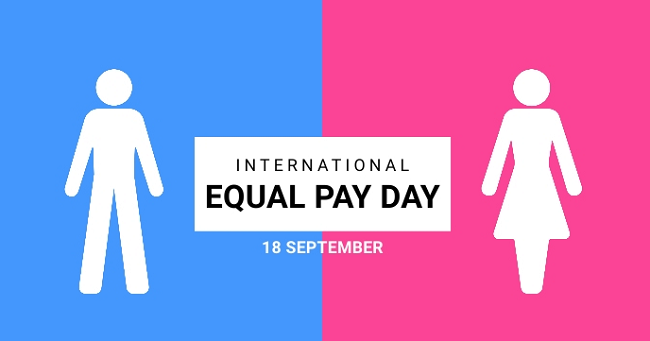Every year on September 18 (today), International Equal Pay Day serves as a sobering reminder of the global female pay disparity. This annual event is a call to action to bridge the gender pay gap and achieve equal pay for equal labor, ensuring that individuals are equally compensated regardless of their gender.
In response to this important day, let us take a look at the gender pay gap in Nigeria and propose ways for closing it and also focus light on global efforts and groups promoting fair pay for all.
The gender pay gap, a global issue, illustrates the inequality in earnings between men and women. According to estimates, women earn approximately 20% less than males worldwide.
This disparity not only violates equality ideals, but also reinforces systemic gender inequities. This problem stems from historical and structural inequities, unequal access to resources, and job discrimination against women.
In Nigeria, like in many other countries, the gender pay gap persists. Women often find themselves underpaid and underrepresented in higher-paying positions
Wage disparities can be ascribed to reasons such as occupational segregation, inadequate access to excellent education and training, and cultural attitudes that prevent women from advancing in their careers.
Strategies for Achieving Equal Pay in Nigeria
Legislative Reforms
To solve the gender pay gap, Nigeria should strengthen its legislative environment by passing and implementing equal pay for equal work regulations. Furthermore, efforts to combat employment discrimination and increase compensation transparency should be introduced.
Equal Opportunity Programs
Employers in Nigeria should implement and actively support workplace rules that encourage equal opportunity. This includes programs to promote gender diversity at all levels of the company, chances for mentoring and professional development for women, and flexible work arrangements.
Education and Training
It is critical to invest in women’s education and skill development. By removing barriers to education and training, women will be able to enter higher-paying occupations and be better equipped to negotiate equitable compensation.
Promoting Pay Transparency
Encouraging corporations to share wage information can help bring gender pay inequities to light and push them to address them.
Global Efforts to Achieve Equal Pay
The fight for equal pay transcends national boundaries. This conflict is being aggressively fought by international organizations and coalitions.
The Equal Pay International Coalition (EPIC), coordinated by the International Labour Organization (ILO), UN Women, and the Organization for Economic Cooperation and Development (OECD), is one significant endeavor.
EPIC is a multinational collaboration devoted to closing the gender pay gap. EPIC strives to reduce the gender wage gap at all levels, from local to global, by bringing together governments, businesses, employees, and experts from a variety of areas.
International Equal Pay Day serves as a timely reminder that the gender pay gap is a serious problem in Nigeria and around the world. Equal pay is a fundamental human rights requirement as well as a matter of economic fairness.
As the world observes this day, governments, businesses, civil society organizations, and individuals must band together to fight for gender wage equity.
We can work together to eliminate the gender pay gap by enacting legislative reforms, promoting equal opportunity, investing in education, and supporting global initiatives like EPIC.










